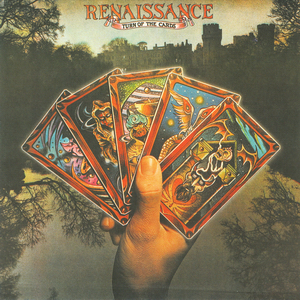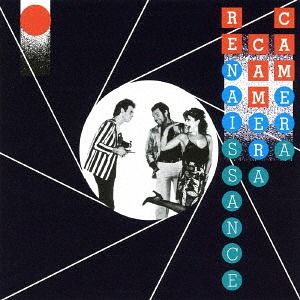
Renaissance are an English progressive rock band, best known for their 1978 UK top 10 hit "Northern Lights" and progressive rock classics like "Carpet of the Sun", "Mother Russia", and "Ashes Are Burning". They developed a unique sound, combining a female lead vocal with a fusion of classical, folk, rock, and jazz influences. Characteristic elements of the Renaissance sound are Annie Haslam's wide vocal range, prominent piano accompaniment, orchestral arrangements and vocal harmonies.

Scheherazade and Other Stories is the sixth studio album by the English progressive rock band Renaissance, released in 1975. Some critics consider it their best album, although others prefer earlier albums. This is the first album in which Renaissance did not use quotes from actual classical pieces and the first not to feature any songwriting credits from the original members. Contrary to popular belief, "Song of Scheherazade" is not based on Nikolai Rimsky-Korsakov's Scheherazade, but does have a brief recurring motif that alludes to that work.

Illusion is the second studio album by the English progressive rock band Renaissance, released in 1971. It was originally released only in Germany and did not receive a wider release until 1973. It was first released in the UK in 1977, with a cover that had the original front and rear cover artwork swapped.

Ashes Are Burning is the fourth studio album by the English progressive rock band Renaissance, released in 1973. It was the first of several Renaissance albums to feature an orchestra playing along with the band. It was the band's first album to make the Billboard 200 album chart, peaking at No. 171.

Turn of the Cards is the fifth studio album by the English progressive rock band Renaissance, released in July 1974. It was the last Renaissance studio album to include excerpts from existing classical pieces. It was also the first album recorded by the group after Michael Dunford, who had written songs for their previous three albums, joined the group as an acoustic guitarist.

Live at Carnegie Hall is a 1976 live double album by the English progressive rock band Renaissance. It presented songs from all of the band's Annie Haslam-era studio albums thus far, including the forthcoming Scheherazade and Other Stories.

Novella is the seventh studio album by the English progressive rock band Renaissance, released in 1977. Bassist Jon Camp began working as a lyricist for this album, making it the first Renaissance album since Illusion (1971) to include songs written entirely by the band members themselves.

A Song for All Seasons is the eighth studio album by the English progressive rock band Renaissance, released in 1978. It marked the return of electric guitars to the band's music after several years of absence. "Northern Lights" from the album reached the top ten on the UK Singles Chart and is the band's only UK chart single.

Azure d'Or is the ninth studio album by the English progressive rock band Renaissance, released in May 1979.

Camera Camera is the tenth studio album by the English progressive rock band Renaissance, released in 1981.

Time-Line the eleventh studio album by the English progressive rock band Renaissance, released in April 1983. It was the last album released by Renaissance before they disbanded in 1987.

Tuscany is the 12th album by the English progressive rock band Renaissance, released in 2001. After a lengthy hiatus, original members Annie Haslam, Michael Dunford, Terence Sullivan and John Tout came together to record a new album, assisted by Roy Wood; Tout was unavailable for the later sessions and was replaced by Mickey Simmonds.
Betty Thatcher was an English lyricist who wrote many of the lyrics for the progressive rock band Renaissance.
"Mother Russia" is the closing song on Renaissance's 1974 album Turn of the Cards. It also appears on the 1976 live album Live at Carnegie Hall, the compilation Tales of 1001 Nights, Vol. 1, and several other Renaissance concert albums.
Nevada were a British folk/progressive rock band and a spin-off from Renaissance, featuring Annie Haslam on vocals and Mick Dunford on guitar. Their Christmas single, "In the Bleak Midwinter", reached the lower edges of the UK singles chart in 1983.

In the Land of the Rising Sun: Live in Japan 2001 is a live album by the English progressive rock band Renaissance. It was released in 2002 by Giant Electric Pea. The album was recorded in Tokyo, Japan in 2001.

Michael Dunford was an English rock guitarist and songwriter. He was best known for being the guitarist for Renaissance from 1970 until his death in 2012.

Grandine il vento is the 13th studio album by the English progressive rock band Renaissance, first released in 2013 and re-released as Symphony of Light in 2014. It was financed through a Kickstarter campaign.

"Northern Lights" is a song by the English progressive rock band Renaissance, released in 1978 from their album A Song for All Seasons. It was the band's only hit single, reaching No. 10 on the UK Singles Chart.
















